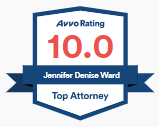The Texas Workforce Commission (TWC) designed the unemployment benefits process to be user friendly. Nonetheless, a simple breakdown, as presented here, can go a long way in easing this process. Let’s look at the four major steps you may need to take on your way to receiving your unemployment benefits.
First step: You must apply for your benefits. You can do this by creating an account with the TWC and following their guided prompts. The TWC urges you do this as soon as possible after your final day of work. After you submit your application, your previous employer will have 14 days to respond by providing additional or contrasting information. The TWC will consider all information provided then issue a determination on your eligibility for unemployment benefits.
Second step: If you would like to appeal the determination, the second step is setting up a telephone hearing with Appeal Tribunal. You must submit an appeal in writing to the TWC Appeal Tribunal with 14 days of the date the determination letter was mailed to you. Submissions are accepted through their online system, in person, mail, or fax. Find the required information for your appeal here. You will be assigned a Hearing Officer and a hearing date. The Hearing Officer’s determination will be mailed to both parties within five to 10 business days after the hearing.
Third step: You will again have 14 days to appeal this decision—this time to The Commission. A TWC attorney will have access to a full recording of the hearing and all exhibits. After reviewing the case, the attorney will issue a recommendation to The Commission. The Commission considers the recommendation and holds a vote to uphold or overturn the decision.
Fourth step: You may choose to request a rehearing or appeal The Commission’s decision to Civil Court. To request a rehearing, you must do so in writing within 14 days. Appealing parties must file appeals to Civil Court within a short window of time, 15 and 28 days after The Commission’s determination. You will receive specific instructions for appealing to civil court along with The Commission’s determination. It is not required that you request a rehearing before appealing to Civil Court, and you may still appeal to Civil Court after requesting a rehearing.
If you have any questions about unemployment claims and appeals, you should consult with an experienced employment law attorney.









